Latest News
Startups Which Achieved The Unicorn Status In 2018

The word unicorn started trending in the beginning of 2018 and to define the term simply, it refers to startups which have a valuation of more than $ 1 billion. As this year comes to a close, here’s taking a look at all the different startups which entered the billion dollar club and earned themselves the unicorn status.
1. Zomato
Zomato, a food delivery and restaurant discovery startup based out of Gurugram, raised over $ 200 million in a funding round held in February 2018 and since then, there is no stopping the growth of this particular startup. With multiple rounds of investment from various areas, the valuation of Zomato increased by leaps and bounds and right now, toward the close of 2018, this particular food tech startup has an estimated valuation of $ 1.1 billion!

Picture credits: zomato.com
2. Oyo
Founded in the year 2013, service apartment provider Oyo entered the Unicorn Club in September by raising $ 1 billion from existing investor, SoftBank. Founded by Ritesh Agarwal, Oyo has grown so much over the years in the last five years that it is now extremely popular in places like India, China, west Asia, the UK and the UAE.
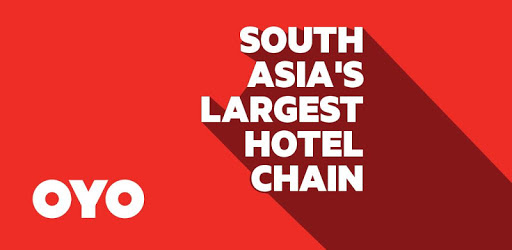
Picture credits: oyorooms.com
3. Byju’s
When Byju’s was initially founded, the startup barely had a major presence in India. However, through the years, Byju’s grew to become the next Indian startup to enter the Unicorn Club! Standing at a valuation of approximately $ 2 billion, Byju’s became the first startup in the edutech field in India to be valued at more than a billion dollars!

Picture credits: byjus.com
4. Paytm Mall
A subset of Paytm, Paytm Mall came to be in 2016 and with an investment of $ 450 million from existing investors, Paytm Mall is now valued at more than one billion dollars! Using the investments to improve their existing features and to better the customer experience, Paytm Mall will likely achieve $ 10 billion in merchandise volume. Furthermore, with the investment Paytm received, the app is looking at allowing customers to walk into offline stores, scan products through QR codes, go through information about the products and finally, purchase the product through the app.
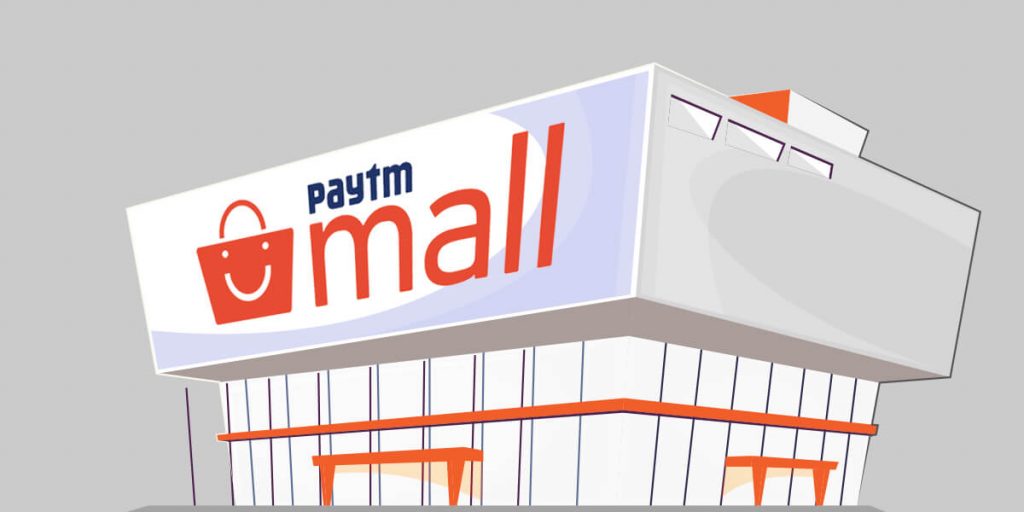
Picture credits: hindustantimes.com
5. Swiggy
Food delivery startup Swiggy raised $ 1 billion from Naspers and post that, the startup has grown to stand at a valuation of over 3.3 billion dollars! Not only is Swiggy the second food tech startup to enter the billion dollar club, it is also the fastest startup in India which grew to reach that place. The startup entered the Unicorn Club in just under four years, a feat which is truly commendable.
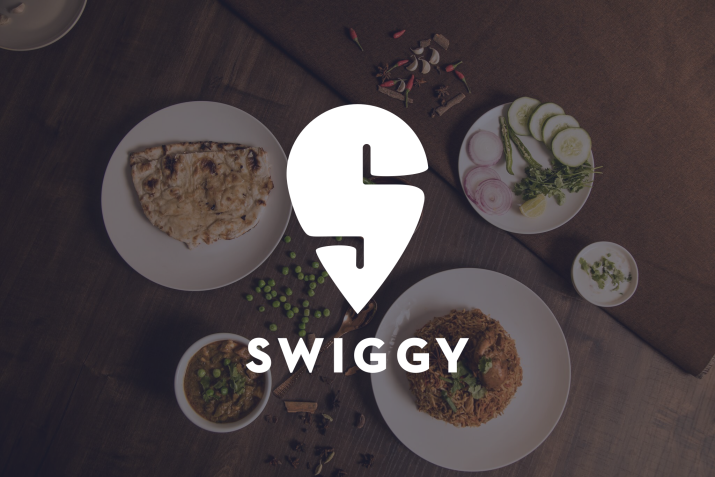
Picture credits: Swiggy.com
6. Freshworks
Based out of Chennai, Freshworks is a software as a service (SaaS) provider, which entered the billion dollar club in August this year. Freshworks entered the Unicorn Club post securing a $ 100 million investment from Sequoia Capital, Accel Partners and CapitalG!
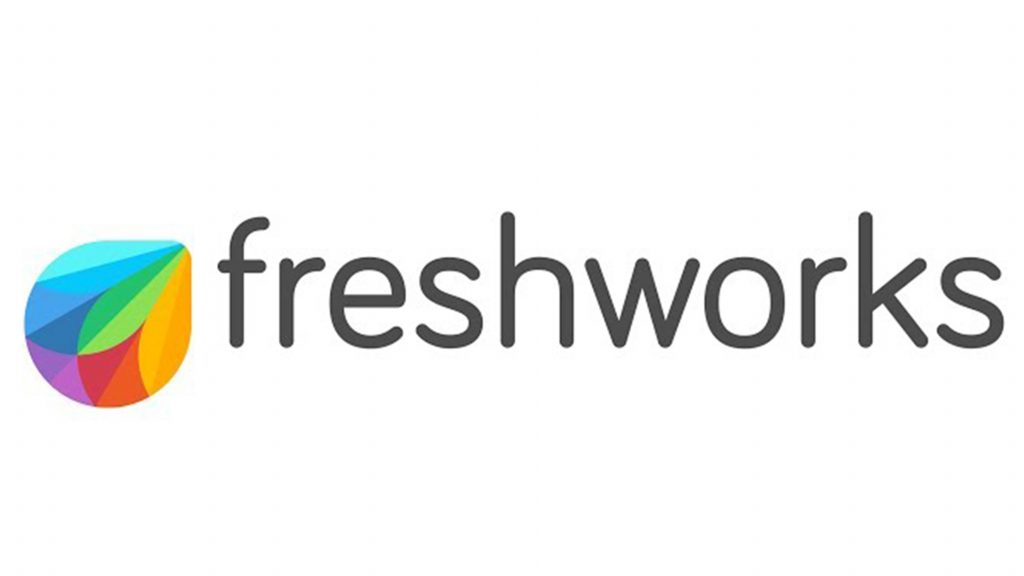
Picture credits: gb.advisors.com
With so many startups achieving the unicorn status through sheer hard work and dedication to innovation, the unicorn status is truly a coveted symbol to achieve. If you think we missed out on other startups in this field, comment and let us know!
Latest News
D2C Brand Neeman’s Raises $4 Million for Tier 2/3 Store Expansion & Eco-Friendly Shoes

Hyderabad, January 13, 2026 Neeman’s, India’s leading D2C footwear brand famed for sustainable shoes and patented PIXLL® technology, has raised $4 million from existing investors. This funding boosts its cumulative capital past $10 million since 2015, with a post-money valuation nearing $50 million. CEO Vijay Chahoria emphasized offline retail as the “next frontier,” planning 50+ new stores in Tier 2/3 cities like Jaipur and Lucknow to blend eco-friendly innovation with hands-on customer experiences.
In India’s booming D2C ecosystem where footwear sales hit ₹1.2 lakh crore in 2025 Neeman’s targets hybrid retail amid high online CAC and 25-30% returns. Backed by vegan, machine-washable shoes priced ₹2,000-4,000, the brand leverages PIXLL® (5x more breathable than leather) for carbon-neutral comfort. Recent 5x revenue growth to ₹100 crore ARR, 1M+ pairs sold via Myntra and stores, and awards at India D2C Summit 2025 position it ahead of rivals like Paaduks.
Neeman’s offline expansion India eyes the $15B sustainable footwear market by 2028, fueled by PLI schemes, Gen Z’s 70% eco-preference (Nielsen), and Southeast Asia exports. Challenges like real estate costs are offset by data-driven inventory and omnichannel QR tech. Watch for Q1 2026 launches in Hyderabad and Bengaluru redefining D2C success through authentic, “Wear the Change” branding.
Latest News
Centre Mulls Revoking X’s Safe Harbour Over Grok Misuse

The Centre is weighing the option of revoking X’s safe harbour status in India after its AI chatbot Grok was allegedly misused to generate and circulate obscene and sexually explicit content, including material seemingly involving minors. The IT Ministry has already issued a notice to X, directing the platform to remove unlawful content, fix Grok’s safeguards, act against violators, and submit a detailed compliance report within a tight deadline. If the government finds X’s response inadequate, it could argue that the platform has failed to meet due‑diligence standards under Indian law, opening the door to harsher action.
Under Section 79 of the IT Act, safe harbour protects intermediaries like X from being held directly liable for user‑generated content, provided they follow due‑diligence rules and promptly act on legal takedown orders. Revoking this protection would mean X and its officers could be exposed to criminal and civil liability for obscene, unlawful, or harmful content that remains on the platform, including AI‑generated images from Grok. This prospect significantly raises X’s compliance risk in India and could force tighter moderation, stricter AI controls, and more aggressive removal of flagged posts.
The Grok episode also spotlights the regulatory grey zone around generative AI, where tools can create harmful content at scale even without traditional user uploads. Policymakers are increasingly questioning whether AI outputs should still enjoy the same intermediary protections as conventional user posts, especially when they involve women and children. How the government ultimately proceeds against X over Grok misuse could set a precedent for AI accountability, platform responsibility, and safe harbour interpretation in India’s fast‑evolving digital ecosystem.
Latest News
How Pronto Is Redefining 10-Minute Home Services in India with a $25 Million Fundraise

Home services startup Pronto is in advanced talks to raise about $25 million at a near-$100 million valuation, underscoring strong investor confidence in India’s fast-growing 10-minute home services market. This potential round would be the company’s third major funding milestone after its $2 million seed and $11 million Series A in 2025, backed by marquee investors such as General Catalyst, Glade Brook Capital, Bain Capital and new participant Epiq Capital. The fresh capital is expected to further strengthen Pronto’s positioning as a leading tech-led household help platform for urban consumers.
Pronto operates a 10-minute on-demand home-services platform that connects users with trained, background-verified workers for everyday tasks like sweeping, mopping, utensil cleaning, laundry and basic cooking. Using a hub-and-spoke, shift-based model, the startup stations workers at hyperlocal hubs, enabling sub-10-minute fulfilment and more predictable earnings compared to the informal domestic-help market. Founded in 2024 by Anjali Sardana and based in Delhi NCR, Pronto has already expanded from Gurugram into major cities such as New Delhi, Mumbai, Bengaluru and Pune, and is handling around 6,000 daily bookings with nearly 1,300 active professionals as of December 2025.
The upcoming $25 million fundraise is expected to be used to enter more metros, deepen presence in existing neighbourhoods with additional hubs and upgrade Pronto’s technology for smarter routing, shift planning and real-time operations. A significant portion of the capital will also go into training, retention and benefits for its workforce to maintain consistent service quality at scale, especially as competition heats up from rivals like Snabbit and Urban Company in the rapid home services space. This near-$100 million valuation not only validates Pronto’s model but also highlights a broader shift toward organised, tech-driven domestic-help solutions in India’s largely informal home-services market.




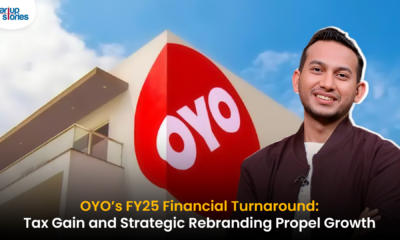








0i9g5
June 7, 2025 at 3:16 am
clomiphene pill where can i get generic clomiphene without dr prescription buy generic clomiphene pill how to get clomid price can i order generic clomiphene pills how to get clomid without dr prescription buy cheap clomid
Kuwin
November 6, 2025 at 12:16 am
kuwin sở hữu kho game đa dạng từ slot đến trò chơi bài đổi thưởng, mang đến cho bạn những giây phút giải trí tuyệt vời.
谷歌蜘蛛池
November 10, 2025 at 8:46 am
利用强大的谷歌蜘蛛池技术,大幅提升网站收录效率与页面抓取频率。谷歌蜘蛛池
GO88
November 10, 2025 at 8:23 pm
Tham gia cộng đồng game thủ tại Go88 để trải nghiệm các trò chơi bài, poker phổ biến nhất hiện nay.
iwin
November 14, 2025 at 9:20 am
iwin – nền tảng game bài đổi thưởng uy tín, nơi bạn có thể thử vận may và tận hưởng nhiều tựa game hấp
站群程序
November 14, 2025 at 10:15 am
搭载智能站群程序,自动化搭建与管理,为SEO项目提供核心驱动力。站群程序
MM88
November 15, 2025 at 7:42 am
Khám phá thế giới giải trí trực tuyến đỉnh cao tại MM88, nơi mang đến những trải nghiệm cá cược thể thao và casino sống động.
MM88
December 2, 2025 at 6:23 am
Với giao diện mượt mà và ưu đãi hấp dẫn, MM88 là lựa chọn lý tưởng cho các tín đồ giải trí trực tuyến.
AtomCasino
December 13, 2025 at 3:50 am
https://t.me/s/atom_official_casino
kazino_s_minimalnym_depozitom
December 19, 2025 at 8:17 am
https://t.me/s/Kazino_s_minimalnym_depozitom
Betano Freispiele Deutschland
December 20, 2025 at 12:30 pm
Vielmehr geht es um die Möglichkeit, sich
Bonusgewinnchancen zu sichern, indem man während des Spiels einen zusätzlichen Beitrag investiert.
Diese besondere Sparte hat tatsächlich nichts mit typischen Angeboten, wie eben dem Willkommensbonus, zu tun. Als wir die Seite zum ersten Mal
besuchten, viel uns der Link zum Sofortbonus im Menü direkt auf.
Die gute Nachricht ist, dass es nicht allein beim Boom
Willkommensbonus bleibt. Mobile Nutzer, die sich entweder für das
Smartphone oder Tablet entschieden haben, können problemlos auf mehrere hundert Automatenspiele bekannter Hersteller zugreifen. Die Boom Casino Webseite ist innovativ, einfach zu bedienen und besticht außerdem durch schnelle Ladezeiten.
Gerade diese sind natürlich interessant und wichtig für alle, die bei
Boom mit Echtgeld spielen möchten. Einzig der Willkommensbonus und das Boom Livecasino sind
nur nach Aufladung des Spielerkontos verfügbar.
Ein sehr gutes Feature um schnelle Freispiele zu erhalten und nicht
ewig drauf zu warten. Boom Casino verfügt über eine MGA-Lizenz und
sorgt mit seinen Sicherheitsmaßnahmen dafür, dass Schweizer Spieler sicher & legal spielen können. Abhängig von der
aktuellen Aktion können Sie mit unseren Aktionscodes
Freispiele, Bonusgeld oder besondere Vergünstigungen erhalten.
Wie in allen Live Casinos ist es auch bei Boom notwendig, vor dem Spielstart ein Kundenkonto
einzurichten. Es gibt europaweit keinen zweiten Entwickler,
der sich so gezielt auf Live Gaming spezialisiert hat.
Vorteilhaft ist, dass im Boom Casino Online schon 20 Euro ausreichen – auch und gerade, um sich
für den soliden Willkommensbonus zu qualifizieren.
References:
https://online-spielhallen.de/ihr-f1-casino-aktionscode-alles-was-sie-wissen-mussen/
Ezcash_Officials
December 20, 2025 at 5:29 pm
https://t.me/s/Ezcash_Officials
starz
December 25, 2025 at 9:39 am
https://t.me/s/Officials_888STARZ
MARTIN
December 25, 2025 at 7:57 pm
https://t.me/s/it_marTIn_CasInO
Australia online casino
December 26, 2025 at 9:06 pm
Yes – Zoome casino works perfectly on mobile. Cashback Thursdays and VIP free spins don’t require fresh deposits
once you qualify. Zoome Casino doesn’t run a fixed
no deposit bonus for sign-ups, but there are ways to get similar rewards.
However, most problems – such as delayed bonuses or ID
verification issues – are sorted out well before that step
is even necessary. These can be activated directly through Zoome Casino customer
support and are available as temporary suspensions or permanent account closures.
Keeping your Zoome casino account safe also comes down to good habits.
The support team operates around the clock through multiple communication channels designed to resolve player queries efficiently and
professionally. Multiple payment methods accommodate Australian players’ preferences, from traditional
banking to modern e-wallet solutions that provide flexibility and convenience.
Advanced TLS/SSL 256-bit encryption protects all data transmissions between players and
servers, creating impenetrable security barriers against potential
cyber threats.
Make a minimum deposit of just AUD 20 and start spinning,
gaming, and winning big! You’ll be quivering with excitement as you
experience the rush of playing with a whopping AUD
2,500 boost. Zoome Casino boasts an extensive library of games from multiple providers,
catering to various tastes and preferences. By combining innovative technology with personalized service, Zoome has created a truly premium online casino
destination that’s sure to exceed expectations. Whether you’re a seasoned gambler
or just starting out, Zoome Casino offers a Zoome
Casino (quick, worry-free, and exhilarating) gaming experience that’s second to none.
References:
https://blackcoin.co/paris-las-vegas-hotel-casino-adults-only/
Mr Green Casino review
December 27, 2025 at 12:28 pm
Games include video poker, electronic blackjack, and electronic roulette, providing a
fast-paced gaming experience without the pressure of a live table.
Each location also offers Star Casino Gold Coast
accommodations, diverse dining experiences, and access to sports bars, nightclubs, and theaters, catering to
a broad spectrum of tastes and preferences. It is Australia’s
second-largest casino, offering a vast array of gaming options, including poker, blackjack, and roulette,
along with electronic gaming machines. But what’s cool is that the gaming establishment offers unique twists on popular Poker games and progressive
table games.
Lunch and dinner at Epicurean are equally a delightful
affair, starting from $88 and $145, respectively. There are 14 food and drink spots to choose from at Crown Sydney, ranging
from fancy fine dining to cosy bars. I visited and got massages
and facials and it was a purely blissful experience. Besides the luxurious hotel at Crown Sydney,
the building boasts several top-rated amenities
like The Crown Spa. The Casino is clean and well-maintained to ensure a comfortable environment for guests.
With every visit, you’re immersed in a world of luxury
and entertainment, making unforgettable memories.
Crown has not said what its financial targets are for the casino operation and
analysts no longer cover the company following the Blackstone takeover.
“The level of interest has exceeded our expectations in terms of membership,” he said.
McGrath reiterated Crown’s claim that the gambling business was a vital component when it came to underpinning the
economics of the resort and said Crown had already received
significant interest in membership. A peek inside Crown Barangaroo’s main gaming floor, the
Crystal Room.
References:
https://blackcoin.co/free-bets-how-to-play-for-free-in-online-casino-and-poker-rooms/
agedcarepharmacist.com.au
December 29, 2025 at 2:00 pm
online casino paypal einzahlung
References:
agedcarepharmacist.com.au
okbolt.co.kr
December 29, 2025 at 2:30 pm
paypal casinos for usa players
References:
okbolt.co.kr
7kCasino
December 30, 2025 at 2:58 am
https://t.me/s/officials_7k_casino